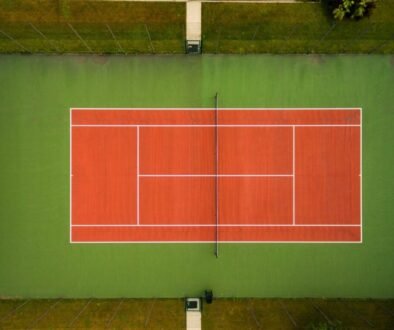What are the symptoms of being overtrained?
Achieving success requires hard work. Without maximum effort, it is impossible to beat other competitors and get to the top. However, the quantity doesn’t always equal quality, so the players have to be careful with the amount of work they do every day. As we said, the more is not always the better. Sometimes, too much work can lead to negative consequences. Without any doubt, one of those negative consequences is overtraining. The players have to run to every ball, bend knees, and accelerate the racket to take the most of every shot. Who gives up on the court, stays behind the rest. Out of the court, players have to lift weights
and run extra miles to take care of their physical performance, which is, of course, crucial for a strong tennis game. Then, we have to also focus on the mental aspects since tennis, as an individual sport, puts a lot of pressure on the player’s mind. The athlete knows that he is just on his own on the court, and doubting the progress, ranking points, and incoming tournaments are some factors that especially drain mental energy. That is why after a long time, if the quantity of work is too high, the players tend to give a weaker performance and lose more matches than usual. Is it bad luck or the first sign of overtraining?
Overtraining is a reaction of the body to the chronic tiredness. Too much work combined with not enough recovery cause physical and mental symptoms that limit the player’s abilities to improve and can lead to many unpleasant situations such as physical injuries and a lack of interest in tennis. What is more, overtrained players can experience problems recovering from an advanced state of overtraining, so actions have to be taken quickly after noticing the first signs of possible chronic tiredness. Of course, one or two bad days in a row shouldn’t make you worry about your physical and mental state. If you do your best every day to become a better competitor, it is common that sometimes you feel weaker and sense that you need to slow down. However, when this state is prolonged, and you don’t see the change even after the weekend free of activities, it is time to check the list below to see if you have some typical
symptoms of possible overtraining. If you observe a few of them yourself, it is time to take some days off, relax and do some fun things that will let you come back to tennis with the proper mental and physical state.
Tiredness.
If you do some new exercises, your muscles can remain sore even a few days after. When you work harder than before, it will be visible in the level of tiredness during the next hours. If you didn’t sleep well or you have a stressful time, it is nothing unusual that your body does not feel great. However, when this stage of tiredness is visible for a longer time, and you feel like you get tired faster than before, it is the sign that you should consider a thorough recovery. Your muscles need time to rebuild, and if you don’t give yourself this time, you put a great danger on both your body and tennis career.
Lack of appetite.
Usually, the players observe that when they train, they are more hungry because their body needs to replenish the energy. However, when there is too much training without adequate recovery, our body starts to work abnormally. Overtrained players lose their appetite, and this puts even more stress on both body and mind. By not providing enough macro and micronutrients, there is a greater risk of getting injuries. At the same time, lack of energy means a bad mood, so a negative mindset will definitely have a harmful impact on the player’s everyday living.
Lack of motivation.
Competitive players need a lot of motivation. They have to get up early and perform a lot of tasks to improve every day. Overtrained players lose the motivation to do even the necessary things. They either give up on their daily actions, or they don’t put 100% effort even when they have started the training. On one day, you can accept that, go home and take a necessary rest. However, if you experience such state consistently, it is time to accept that your body and mind need a proper rest.
Problems with sleeping.
If you think that after some hard sessions, you lie down and fall asleep quickly, you are wrong. Your body cannot have distractions to fall asleep and maintain a night of quality sleep. That is why when you are especially tired and have some pains, there is a high chance that it will take you more time to fall asleep and maintain the quality of sleep. This disturbed process undoubtedly has a negative impact on your energy level the next day.
It seems like the recipe for success is work. That is only partially true, since like with any aspect in life, a healthy balance is the key. If there is not enough work, you cannot expect outstanding results. On the other hand, if there is not enough recovery, you may be sluggish and tired all the time. Learn how to listen to your body and mind, and if you see some of the symptoms listed above, make sure you take necessary actions based on recovery.




